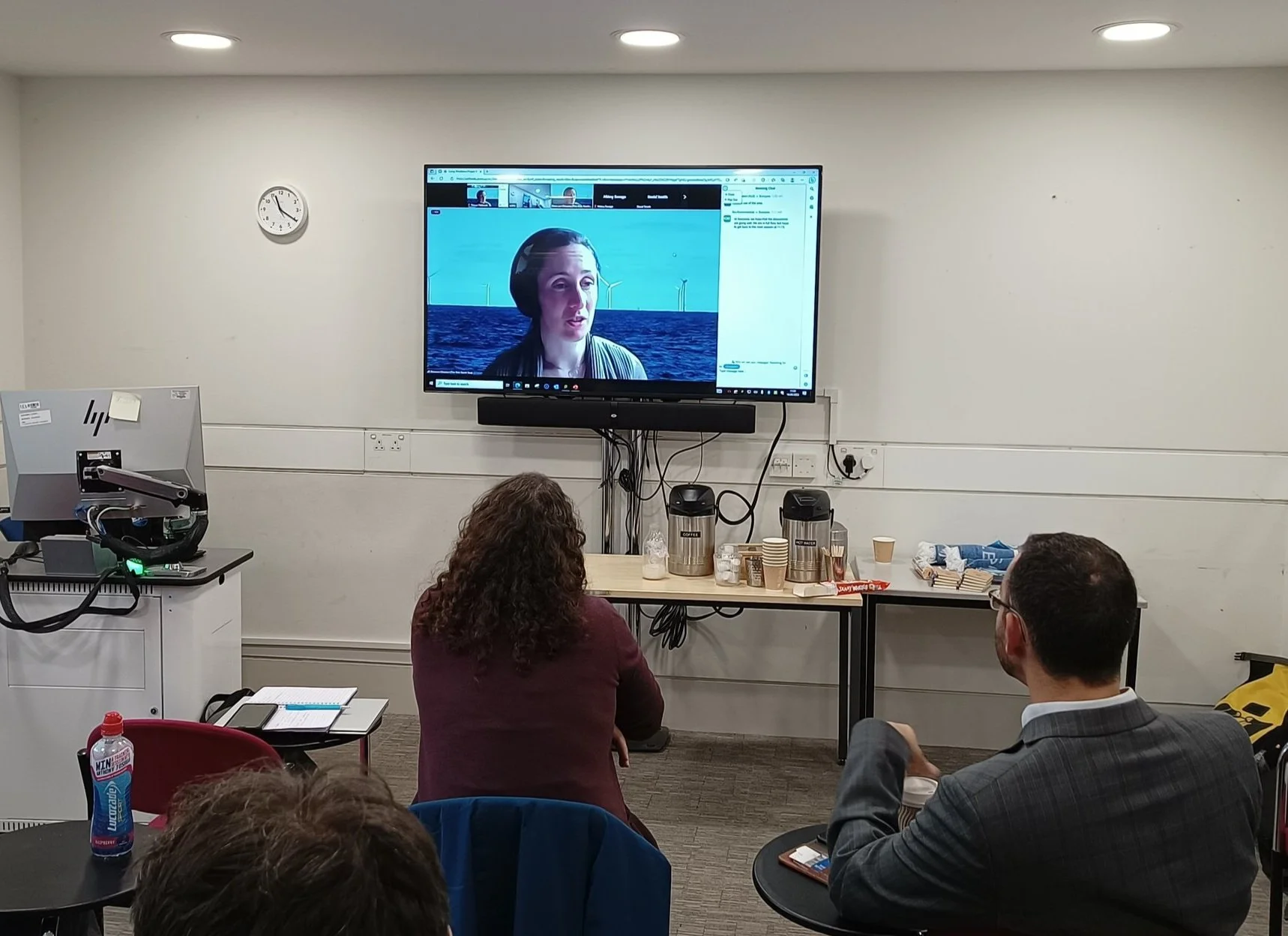Living Windfarms Workshop March 2023
The second Living Windfarms Project hybrid workshop was held at the University of East Anglia on the 16th of March 2023. The workshop outlined current decommissioning legislation and included participants in discussions about the process of decommissioning and the necessary ecological considerations. The Living Windfarms Project seeks to establish the full commercialisation of ExoReef scour protection, our ecologically engineered solution to traditional scour protection, which will assist the offshore wind sector in meeting legislated targets. Dynamic discussions took place regarding the implications of existing decommissioning legislation on emerging environmental considerations, how this may influence decommissioning practices moving forward and the role of the offshore renewable energy sector in mitigating and enhancing habitats.
The workshop was opened by Dr Trevor Tolhurst and Dr Colette Matthewman who welcomed us all to the UEA and introduced the Marine Knowledge Exchange Network, a network of cross-sector marine stakeholders which facilitates networking and workshop events to increase the potential of all relevant sectors. Will Melhuish of Exo Engineering reintroduced the Living Windfarms Project and the interactive portions within the schedule.
Peter Cosgrove from the Marine Management Organisation (MMO) outlined the current decommissioning legislation in the UK and the other countries surrounding the North Sea. This provided useful insight into current experiences, with decommissioning now on the horizon for some of the oldest windfarms developments in the North Sea.
Eline Van Onselen from The Rich North Sea followed, explaining the current processes of decommissioning. Eline continued by walking our participants through a hypothetical offshore wind decommissioning strategy scenario. It was incredibly interesting to hear how various key players would approach this. There were several key themes and challenges that surfaced during the scenario discussions, with implications beyond the footprint of the offshore wind development and potential for impacting the whole North Sea.
These included:
Is it feasible to recover rock armour scour protection as part decommissioning, considering the costs and logistical challenges involved as well as the damage to potentially thriving reef systems that have been established?
If structures aren’t removed, what limitations should be in place to prevent loopholes being utilised which can cause negative environmental impacts?
Is current legislation overly cautious or suffering from shifting baseline syndrome?
Repowering is idealised within the conservation field, however, it cannot be put into practice within the early windfarms due to inadequate pylon size for current wattages.
We finished the workshop with a short open discussion led by William Coulet, director of Exo Engineering, allowing everyone to ask the speakers questions.
This hybrid workshop demonstrated that there are many voices within the industry itself who are not only willing to discuss the potential for environmental restoration across the lifetime of offshore installations but have a real desire to see this enacted at a government scale. We hope that some of the key topics discussed in this workshop can be revisited in future events as the Living Windfarms Project progresses.

